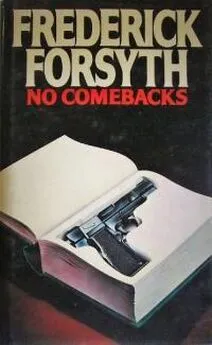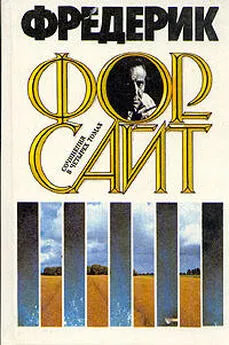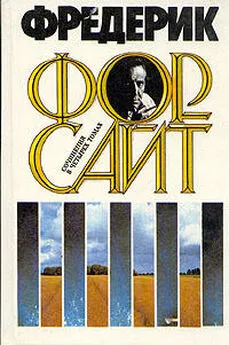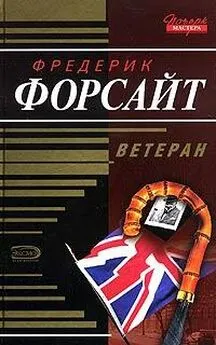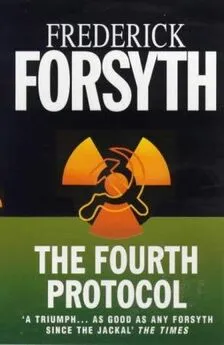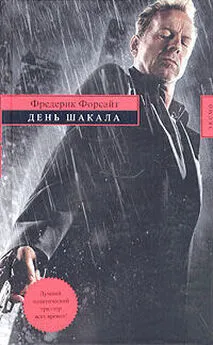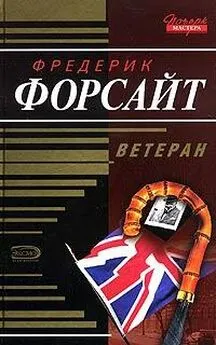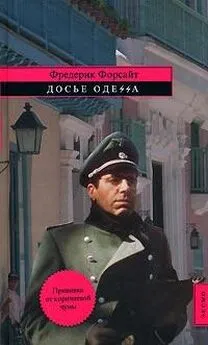Фредерик Форсайт - Нет возврата
- Название:Нет возврата
- Автор:
- Жанр:
- Издательство:Hutchinson
- Год:1982
- Город:London
- ISBN:0-09-147870-7
- Рейтинг:
- Избранное:Добавить в избранное
-
Отзывы:
-
Ваша оценка:
Фредерик Форсайт - Нет возврата краткое содержание
Перед Вами сборник из 10 рассказов, держащих читателя в напряжении, посвященных изменам, шантажу, убийствам и мести, кульминации которых шокируют неожиданными поворотами судеб. На этих страницах оживают персонажи, которых Вы не скоро сможете забыть. Живые люди бесповоротно оказываются в мире, из которого уже нельзя вернуться, если перейти "точку невозврата", перейдя от простого манипулирования покупкой и продажей человеческой жизни к смертельным актам насилия. Содержание:
1. Никаких улик
2. В Ирландии не водятся змеи
3. Император
4. Бывают же дни…
5. Шантаж
6. Used in Evidence - англ.
7. Абсолютная привилегия
8. Долг
9. A Careful Man - англ.
10. В дураках
Нет возврата - читать онлайн бесплатно полную версию (весь текст целиком)
Интервал:
Закладка:
Round the fireplace, two men worked with special care. The rubble on top of the corpse was lifted carefully away until only a thick film of dust covered the body. It was bent into an embryo posture, lying on its side, though in its cavity it had probably sat upright, facing sideways. Professor McCarthy, looking over what was left of the house wall, directed these two men at their work. When it was done to his satisfaction, he entered the cavity among the remaining bricks and with a soft brush, like a careful housewife, began to whisk away the creamy dust of the old mortar.
When he had cleared the major part of the dust, he examined the body more closely, tapped part of the exposed thigh and of the upper arm, and emerged from the cavity.
'It's a mummy,' he told Hanley.
'A mummy?'
'Just so. With a brick or concrete floor, a sealed environment on all six sides, and the Warmth of the fireplace two feet away, mummification has taken place. Dehydration, but with preservation. The organs may well be intact, but hard as wood. No use trying to cut tonight. I'll need the warm glycerine bath. It'll take time.'
'How long?' asked Hanley.
'Twelve hours at least. Maybe more. I've known it take days.' The professor glanced at his watch. 'It's nearly four. I'll have it immersed by five. Tomorrow morning around nine, I'll look in at the morgue and see if I can start.'
'Blast,' said Hanley. 'I wanted this one sewn up.'
'An unfortunate choice of words,' said McCarthy. 'I'll do the best I can. Actually, I don't think the organs will tell us much. From what I can see there's a ligature round the neck.'
'Strangulation, eh?'
'Maybe,' said McCarthy. The undertaker who always got the city contracts had his van parked out beyond the screens. Under the state pathologist's supervision, two of his men lifted the rigid corpse, still on its side, onto a bier, covered it with a large blanket and transferred their cargo to the waiting hearse. Followed by the professor, they sped off to Store Street and the city morgue. Hanley walked over to the fingerprint man from the technical section.
'Anything here for you?' he asked.
The man shrugged. 'It's all brick and rubble in there, sir. There's not a clean surface in the place.'
'How about you?' Hanley asked the photographer from the same office.
'I'll need a bit more, sir. I'll wait until the boys have got it cleared down to the floor, then see if there's anything there. If not, I've got it for tonight.'
The gang foreman from the contractor wandered over. He had been kept standing by at Hanley's suggestion, as a technical expert in case of hazard from falling rubble. He grinned.
'That's a lovely job you've done there,' he said in his broad Dublin accent. 'There'll not be much for my lads left to do.'
Hanley gestured to the street where most of the house now lay in a single large mound of brick and timber debris.
'You can start shifting that if you like. We're finished with it,' he said.
The foreman glanced at his watch in the gathering gloom. 'There's an hour left,' he said. 'We'll get most of it shifted. Can we start on the rest of the house tomorrow? The boss wants to get that park finished and fenced.'
'Check with me at nine tomorrow morning. I'll let you know,' he said.
Before leaving he called over his detective chief inspector who had been organizing it all.
'There are portable lights coming,' he said. 'Have the lads bring it down to floor level and search the floor surface for any signs of interference since it was laid down.'
The detective nodded. 'So far it's just the one hiding place,' he said. 'But I'll keep looking till it's clean.'
Back at the station, Hanley got the first chance to look at something that might tell him about the old man in the cells. On his desk was the pile of assorted odds and ends that the bailiffs had removed from the house that morning and put into the council van. He went through each document carefully, using a magnifying glass to read the old and faded lettering.
There was a birth certificate, giving the name of the old man, his place of birth as Dublin and his age. He had been born in 1911. There were some old letters, but from people who meant nothing to Hanley, mostly from long ago, and their contents had no seeming bearing on the case. But two things were of interest. One was a faded photograph, mottled and warped, in a cheap frame, but unglassed. It showed a soldier in what looked like British Army uniform, smiling uncertainly into the camera. Hanley recognized a much younger version of the old man in the cells. On his arm was a plump young woman with a posy of flowers; no wedding dress but a neutral-coloured two-piece suit with the high, square shoulders of the mid to late 1940s.
The other item was the cigar box. It contained more letters, also irrelevant to the case, three medal ribbons clipped to a bar with a pin behind it, and a British Army service pay book. Hanley reached for the telephone. It was twenty past five, but he might be lucky. He was. The military attach^ at the British embassy out at Sandyford was still at his desk. Hanley explained his problem. Major Dawkins said he would be glad to help if he could, unofficially, of course. Of course. Official requests have to go through channels. Officially all contact between the Irish police force and Britain goes through channels. Unofficially, contacts are much closer than either side would be prepared to concede to the idle inquirer. Major Dawkins agreed to stop by the police station on his way home, even though it meant quite a detour.
Darkness had long fallen when the first of the two young detectives doing the legwork reported back. He was the man who had been checking the register of deeds and the rating lists. Seated in front of Hanley's desk, he flicked open his notebook and recited.
The house at 38 Mayo Road had been bought, so the records of deeds showed, by Herbert James Larkin in 1954 from the estate of the previous owner, then deceased. He had paid £400 for the property, title freehold. No evidence of a mortgage, so he had had the money available. The rating list showed the house to have been owned since that date by the same Herbert James Larkin and occupied by Mr Herbert James Larkin and Mrs Violet Larkin. No record of the wife's decease or departure, but then the rating list would not show a change of occupancy, even in part, unless advised in writing by the continuing occupant, which had not happened. But a search of the death certificates over at the Custom House, going back to 1954, revealed no trace of the death of any Mrs Violet Larkin, of that address or any other.
Department of Health and Welfare records showed that Larkin drew a state pension for the past two years, never applied for supplementary benefit, and prior to pensionable retirement was apparently a storekeeper and night watchman. One last thing, said the sergeant. His internal PA YE forms, starting in 1954, had shown a previous address in North London, England.
Hanley flicked the Army pay book across the desk.
'So he was in the British Army,' said the sergeant.
'Nothing strange in that,' said Hanley. 'There were fifty thousand Irishmen in the British Armed Forces during the Second World War. Larkin was one of them, it seems.'
'Perhaps the wife was English. He came back to Dublin in 1954 with her from North London.'
'Likely she was,' said Hanley, pushing over the wedding photo. 'He married her in uniform.'
The internal phone rang to inform him the military attache from the British Embassy was at the front desk. Hanley nodded at his sergeant, who left. 'Show him in, please,' said Hanley.
Major Dawkins was Hanley's luckiest find of the day. He crossed his pinstripe-clad legs elegantly, aimed a glittering toe-cap at Hanley across the desk and listened quietly. Then he studied the wedding photograph intently for a while.
Finally he came round the desk and stood by Hanley's shoulder with the magnifying glass in one hand and his gold propelling pencil in the other. With the tip of the pencil, he tapped the cap badge above Larkin's face in the photograph.
'King's Dragoon Guards,' he said with certainty.
'How do you know that?' asked Hanley.
Major Dawkins passed Hanley the magnifying glass.
'The double-headed eagle,' he said. 'Cap badge of the King's Dragoon Guards. Very distinctive. None like it.'
'Anything else?' asked Hanley.
Dawkins pointed to the three medals on the chest of the newly-wed.
'The first one is the 1939–1945 Star,' he said, 'and the third one at the end is the Victory Medal. But the one in the middle is the Africa Star with what looks like the bar clasp of the Eighth Army across it. That makes sense. The King's Dragoon Guards fought against Rommel in North Africa. Armoured cars, actually.'
Hanley brought out the three medal ribbons. Those in the photograph were the full ceremonial medals; those on the desk were the smaller version — the miniatures on a bar — for wearing with un-dress uniform.
'Ah, yes,' said Major Dawkins, with a glance at them. 'The same pattern see. And the Eighth Army bar.'
With the glass, Hanley could make out that the pattern was the same. He passed Major Dawkins the service pay book. Dawkins' eyes lit up. He flicked through the pages.
'Volunteered at Liverpool, October 1940,' he said, 'probably at Burton's.'
'Burton's?' asked Hanley.
'Burton, the tailors. It was the recruiting centre at Liverpool during the war. A lot of the Irish volunteers arrived at Liverpool docks and were directed there by the recruiting sergeants. Demobilized January 1946. Honourable discharge. Odd.'
'What?' asked Hanley.
'Volunteered in 1940. Fought in action with armoured cars in North Africa. Stayed until 1946. But he stayed a trooper. Never won a stripe on his arm. Never made corporal.' He tapped the uniformed arm in the wedding photograph.
'Perhaps he was a bad soldier,' suggested Hanley.
'Possibly.'
'Can you get me some more details of his war record?' asked Hanley.
'First thing in the morning,' said Dawkins. He noted most of the details in the pay book and left.
Hanley had a canteen supper and waited for his second detective sergeant to report back. The man arrived at well past 10.30, tired but triumphant.
'I spoke with fifteen of those who knew Larkin and his wife in Mayo Road,' he said, 'and three came up trumps. Mrs Moran, the next-door neighbour. She'd been there for thirty years and remembers the Larkins moving in. The postman, now retired, who served Mayo Road up till last year, and Father Byrne, also retired, now living in a retired priests' home out at Inchicore. I've just got back from there, hence the delay.'
Hanley sat back as the detective flicked back to the start of his notebook and began to report.
'Mrs Moran recalled that in 1954 the widower who had lived there, at Number 38, died and shortly afterwards, a For Sale notice went up on the house. It was only there a fortnight, then it came down. A fortnight later, the Larkins moved in. Larkin was then about forty-five, his wife much younger. She was English, a Londoner, and told Mrs Moran they had moved from London where her husband had been a store clerk. One summer, Mrs Larkin disappeared; Mrs Moran put the year at 1963.'
'How is she so certain?' asked Hanley.
'That November Kennedy was killed,' said the detective sergeant. 'The news came from the lounge bar up the street where there was a television set. Within twenty minutes everyone in Mayo Road was on the pavement discussing it. Mrs Moran was so excited she burst into Larkin's house next door to tell him. She didn't knock, just walked into the sitting room. Larkin was dozing in a chair. He jumped up in great alarm and couldn't wait to get her out of the house. Mrs Larkin had left by then. But she was there in the spring and summer; she used to baby-sit for the Morans on a Saturday night; Mrs Moran's second baby was born in January 1963. So it was the late summer of '63 that Mrs Larkin disappeared.'
Читать дальшеИнтервал:
Закладка:
